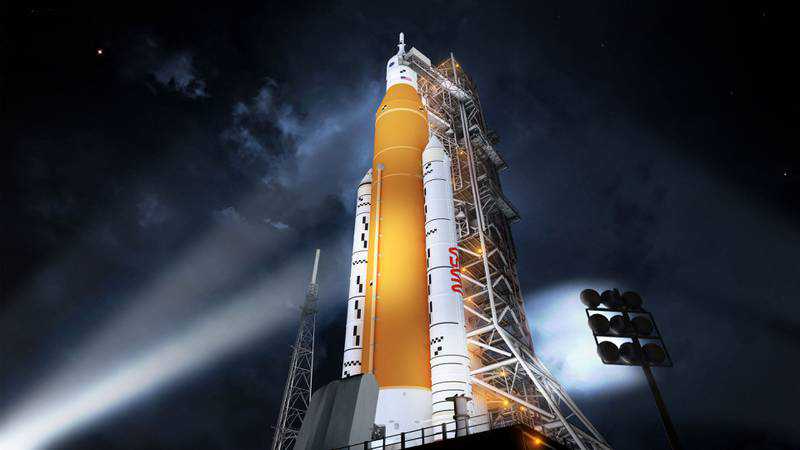Nasa's moon mission pushed back to 2025
10 November, 2021

Nasa has pushed back its target date to send astronauts back to the moon to 2025 at the earliest.
Former US president Donald Trump had set a target of 2024 for humans to set foot on the lunar surface once again. But the space agency said on Tuesday it would push back the timeline by a year after losing 'nearly seven months in litigation’.
It comes a day after Nasa said it would crash a spacecraft into an asteroid to test Earth's defences against cosmic threats.
The Trump administration's Artemis initiative was intended as a stepping stone towards the objective of sending astronauts to Mars.
Nasa administrator Bill Nelson said delays from legal wrangling over the SpaceX contract to build the Artemis lunar landing vehicle was a major reason for extending the target date.
"We lost nearly seven months in litigation, and that likely has pushed the first human landing likely to no earlier than 2025," Mr Nelson told a news conference. "We are estimating no earlier than 2025 for Artemis 3, which would be the human lander on the first demonstration landing."
A federal judge last Thursday rejected a lawsuit by Jeff Bezos' space company Blue Origin against the US government challenging Nasa’s decision to award a $2.9 billion lunar lander contract to rival billionaire Elon Musk's SpaceX.
The ruling allows the National Aeronautics and Space Administration to resume its collaboration with SpaceX on the lander contract, although Nelson said Musk's company had continued development work on its own in the meantime.
Nelson said Congress had previously not approved enough money for the programme and the "target of a 2024 human landing was not grounded in technical feasibility".
Mr Nelson, a former astronaut and US senator appointed by President Joe Biden to lead the space agency, said delays caused by Covid-19 also played a role.
Nasa had previously aimed to return crewed spacecraft to the lunar surface by 2028, after putting a "Gateway" space station into orbit around the moon by 2024.
But the Trump administration, in a surprise 2019 pronouncement from then-vice president Mike Pence, set a deadline for putting Americans back on the moon within five years "by any means necessary".
At the time, Mr Pence said the US was in a new "space race", borrowing vocabulary from the 1960s Cold War era, to counter the potential space weaponry capabilities of Russia and China.
Source: www.thenationalnews.com
TAG(s):
